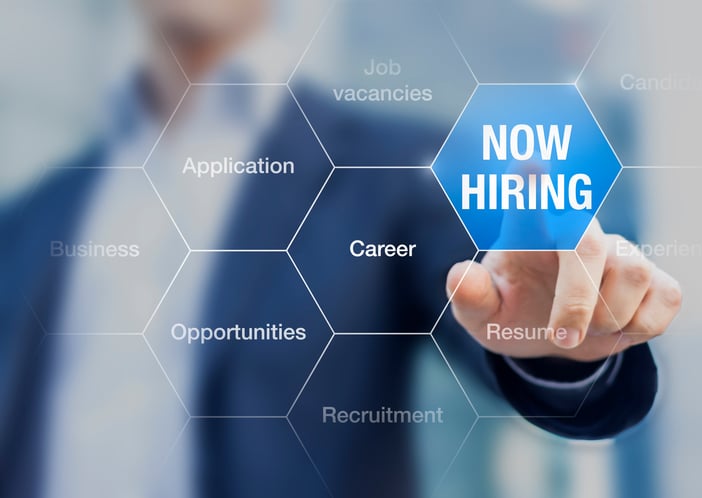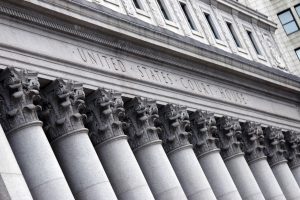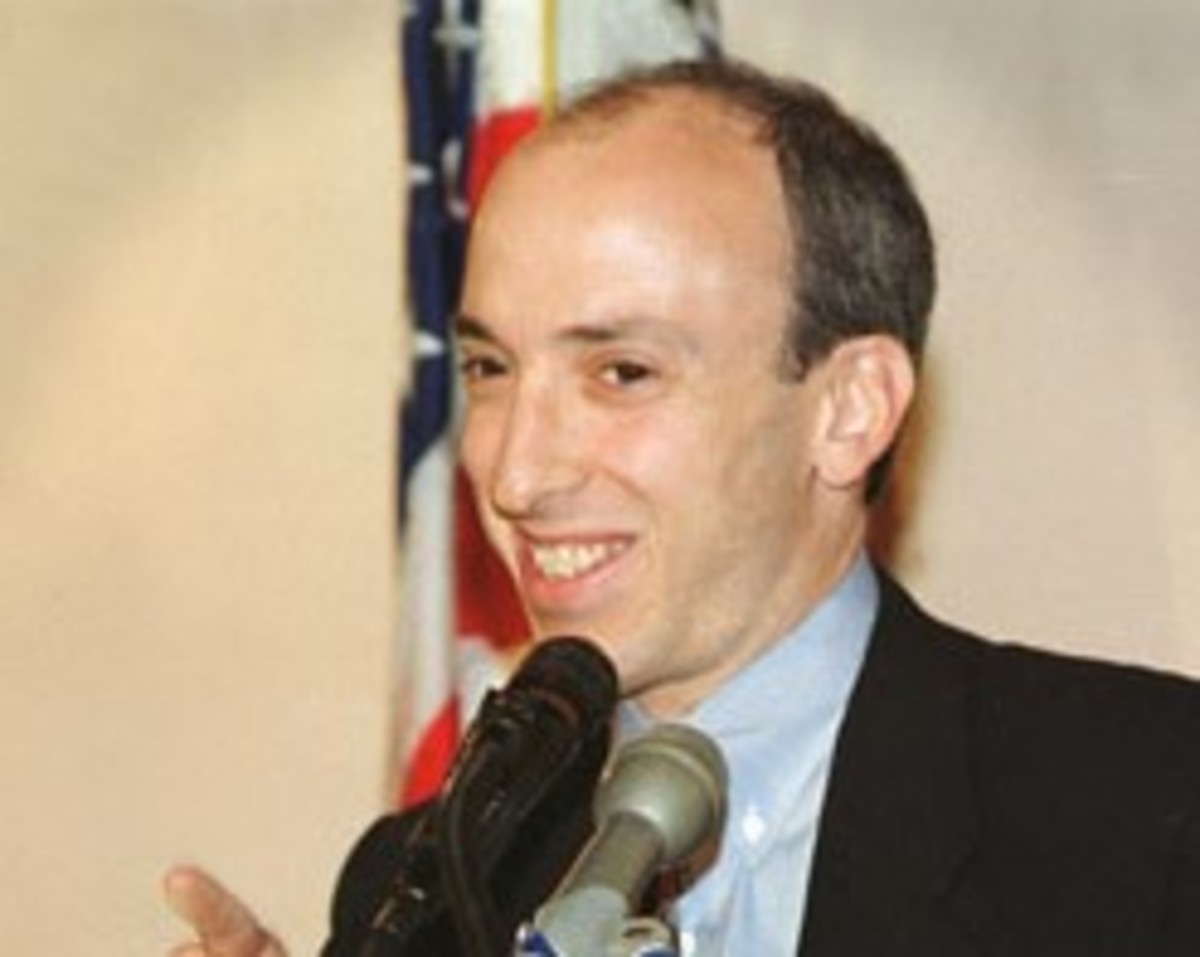The rise of SPACs (Special Purpose Acquisition Companies), aka the “blank check boom,” has significantly shaped the IPO and M&A markets over the past year. Law firms have innovated and expanded their capabilities and offerings to specifically advise on these popular transactions. How have SPACs affected law firms, attorney recruiting, and the current legal job market?
What are SPACs, exactly? Here’s a good overview, from a McGuireWoods client memo:
SPACs are publicly traded companies created as vehicles to take promising private companies public. A SPAC offers securities for cash, and places the offering proceeds into a trust or escrow account to be used to acquire one or more operating companies. After the IPO, the SPAC generally has a limited amount of time to identify acquisition targets. SPACs sometimes are called “blank check companies” because their investors give management discretion to identify and acquire private companies after the IPO.
SPACs are attractive to investors and target corporations because they allow companies to go public faster and with lower costs and with fewer regulatory hurdles than traditional IPOs. In 2020, SPACs grew exponentially, raising a record-high of over $83 billion with 248 blank check IPOs, according to SPACInsider — a 320 percent increase in the number of SPAC IPOs compared to 2019. Looking at 2021, there have already been more SPAC IPOs than in all of 2020, with 308 SPAC IPOs completed and over $99 billion in capital raised as of this writing.
Some of the most notable recent SPAC IPOs include the fantasy sports and sports betting company DraftKings, the electric car battery manufacturer QuantumScape, and spaceflight company Virgin Galactic. Also, recently, the global office-space commercial real estate company WeWork announced its planned merger with the SPAC BowX Acquisition Corp.
SPACs have been around since the mid 1990s, but back then they had more regulatory hurdles and investor risk. As explained by TechCrunch, in the past “SPACs have been the avenue of last resort for companies that want to go public but can’t — either because underwriters won’t take them public or the public markets won’t embrace them.”
Over the last 10 years, however, the number of SPAC IPOs has steadily increased as a result of structural improvements and decreased regulation. Per a Skadden Arps client memo:
The popularity of SPACs can be attributed to various factors, including highly regarded sponsor teams, their unique investment structure, a better understanding by the market of the SPAC structure, the well-established complementary private investment in the public equity (PIPE) financing market, and the potential attractiveness for target companies of the subsequent acquisition as compared to a traditional IPO or M&A transaction.
The substantial increase in SPAC-related transactions has spurred demand for the services of large law firms across corporate, finance, tax, and other practice groups. Numerous firms have formed multidisciplinary SPAC sub-specialty teams bringing together attorneys from different practice groups to advise sponsors, SPACs, underwriters, and target companies through the entire life cycle of SPAC transactions.
Specifically, capital markets, M&A, finance, private funds, and tax teams work together on transactional and regulatory matters surrounding SPAC IPOs and mergers, including SPAC formation and structuring, SPAC merger-related securities filings, SPAC merger financing arrangements, IPO offering materials and pre-IPO diligence, SPAC merger redemptions and repurchases, and cross-border tax issues. Private-equity-focused corporate practice groups have also held a central presence in the SPAC IPO market, with SPACs often backed by private equity sponsors and the use of PIPE financing to raise additional capital for SPAC IPOs, as recently discussed by CNBC.
Firms are also predicting and seeing an increase in SPAC-related commercial and securities litigation. As noted by McGuireWoods:
Right now, there is a growing trend of SPAC shareholder lawsuits filed soon after announcements of mergers between SPACs and their target companies. Those business combinations are often called “de-SPAC transactions.” The lawsuits typically seek both money damages and injunctive relief to prevent the culmination of the transaction. In addition to individual shareholder suits, class actions are being filed.
The lawsuits typically seek both money damages and injunctive relief to prevent the closing of the transaction. Class actions have also been filed alleging inadequate pre-merger management disclosures or violations of the Securities and Exchange Act of 1934.
Looking at SPAC Research’s Legal League Tables, in 2020 Skadden and Kirkland led in total deal volume at $20.6B and $20.5B, respectively. The New York boutique of Ellenoff, Grossman, & Schole, which has long specialized in SPAC IPOs and related transactions, led in total deal count, with 69 SPAC IPOs in 2020, followed by Kirkland at 64. Thus far, in 2021, of the 308 SPAC IPOs, Kirkland leads in total deal volume at $24B, followed by Skadden at $22.1B. Looking at total deal count, Ellenoff leads with 78 SPAC IPOs, followed by Kirkland advising on 68 total. Other firms at the front of the pack for highest SPAC IPO 2020–2021 market share include Ropes & Gray, White & Case, Davis Polk, Weil Gotshal, Latham & Watkins, and Greenberg Traurig.
Since the end of the fourth quarter of 2020, there has been unprecedented demand for capital markets and corporate M&A partners and associates. SPAC activity along with the larger resurgence in corporate deal and lending activity has contributed to ascending growth in these practice areas. While SPACs have prompted demand in other practice areas, M&A and capital markets are the most directly related to SPACs. Despite this increased demand, there have been a limited number of corresponding SPAC-focused corporate partner or group hires. This is likely due to the limited number of practitioners specializing in SPAC-related transactions, with SPACs being a relatively nascent industry for most law firms.
Corporate and finance associate lateral activity could not be busier. In the first quarter of 2021, according to data from Leopard Solutions, there were 480 lateral corporate and finance associates hired into Am Law 200 firms nationally. This is a 27 percent increase from the first quarter of 2020, which reached a five-year-high of 379 lateral corporate and finance associates hired into Am Law 200 firms. (Most law firm COVID-related economic repercussions began in the second quarter of 2020.) This year’s first quarter results also represent a 37 percent uptick over the 2016–2020 first quarter average of 350 associates hired by Am Law 200 firms. Therefore, it is safe to say we are well above pre-pandemic hiring levels.
While there is debate among economists and finance leaders over how long the boom in SPACs will continue or if we are looking at a SPAC bubble that could eventually burst, the consensus is that robust SPAC activity levels will persist for the foreseeable future. SPAC transactions will thus continue to drive law firm demand along with the larger economic recovery.
If you are an associate, counsel, or partner considering a lateral move, or a firm or company seeking to hire attorneys, please reach out to me at jhyde@laterallink.com or find me on LinkedIn. My Lateral Link colleagues and I would be happy to assist.
 Ed. note: This is the latest installment in a series of posts from Lateral Link’s team of expert contributors. Jesse Hyde is a Director based in the Chicago office, where he oversees attorney placements and client services in Chicago and throughout the Midwest. He specializes in placing associates, partners, and in-house counsel with leading Am Law 100 and 200 law firms and premier corporations. With a proven successful track record, Jesse advises attorneys, law firms, and companies through all stages of the recruitment and hiring process to effectively reach their objectives. Jesse received his J.D. from Loyola University Chicago School of Law, where he was on the Dean’s List and a Member of the Loyola University Chicago Law Journal. Jesse received his B.A. from the University of Michigan and majored in history. Before recruiting, he practiced as a commercial litigation attorney with a Chicago-based law firm for four years.
Ed. note: This is the latest installment in a series of posts from Lateral Link’s team of expert contributors. Jesse Hyde is a Director based in the Chicago office, where he oversees attorney placements and client services in Chicago and throughout the Midwest. He specializes in placing associates, partners, and in-house counsel with leading Am Law 100 and 200 law firms and premier corporations. With a proven successful track record, Jesse advises attorneys, law firms, and companies through all stages of the recruitment and hiring process to effectively reach their objectives. Jesse received his J.D. from Loyola University Chicago School of Law, where he was on the Dean’s List and a Member of the Loyola University Chicago Law Journal. Jesse received his B.A. from the University of Michigan and majored in history. Before recruiting, he practiced as a commercial litigation attorney with a Chicago-based law firm for four years.
 Lateral Link is one of the top-rated international legal recruiting firms. With over 14 offices worldwide, Lateral Link specializes in placing attorneys at the most prestigious law firms and companies in the world. Managed by former practicing attorneys from top law schools, Lateral Link has a tradition of hiring lawyers to execute the lateral leaps of practicing attorneys. Click here to find out more about us.
Lateral Link is one of the top-rated international legal recruiting firms. With over 14 offices worldwide, Lateral Link specializes in placing attorneys at the most prestigious law firms and companies in the world. Managed by former practicing attorneys from top law schools, Lateral Link has a tradition of hiring lawyers to execute the lateral leaps of practicing attorneys. Click here to find out more about us.
Topics
Advice, Biglaw, Career Advice, Corporate law, Jesse Hyde, Lateral Link, Lateral Moves, Mergers and Acquisitions, SPACs, Sponsored Content, Transactional practice
 Staci Zaretsky is a senior editor at Above the Law, where she’s worked since 2011. She’d love to hear from you, so please feel free to email her with any tips, questions, comments, or critiques. You can follow her on Twitter or connect with her on LinkedIn.
Staci Zaretsky is a senior editor at Above the Law, where she’s worked since 2011. She’d love to hear from you, so please feel free to email her with any tips, questions, comments, or critiques. You can follow her on Twitter or connect with her on LinkedIn.



 Ed. note: This is the latest installment in a series of posts from Lateral Link’s team of expert contributors. Jesse Hyde is a Director based in the Chicago office, where he oversees attorney placements and client services in Chicago and throughout the Midwest. He specializes in placing associates, partners, and in-house counsel with leading Am Law 100 and 200 law firms and premier corporations. With a proven successful track record, Jesse advises attorneys, law firms, and companies through all stages of the recruitment and hiring process to effectively reach their objectives. Jesse received his J.D. from Loyola University Chicago School of Law, where he was on the Dean’s List and a Member of the Loyola University Chicago Law Journal. Jesse received his B.A. from the University of Michigan and majored in history. Before recruiting, he practiced as a commercial litigation attorney with a Chicago-based law firm for four years.
Ed. note: This is the latest installment in a series of posts from Lateral Link’s team of expert contributors. Jesse Hyde is a Director based in the Chicago office, where he oversees attorney placements and client services in Chicago and throughout the Midwest. He specializes in placing associates, partners, and in-house counsel with leading Am Law 100 and 200 law firms and premier corporations. With a proven successful track record, Jesse advises attorneys, law firms, and companies through all stages of the recruitment and hiring process to effectively reach their objectives. Jesse received his J.D. from Loyola University Chicago School of Law, where he was on the Dean’s List and a Member of the Loyola University Chicago Law Journal. Jesse received his B.A. from the University of Michigan and majored in history. Before recruiting, he practiced as a commercial litigation attorney with a Chicago-based law firm for four years.







 Jordan Rothman is a partner of
Jordan Rothman is a partner of 


